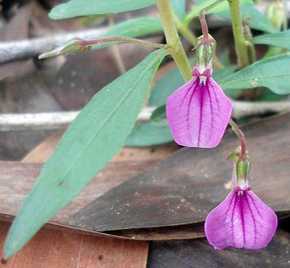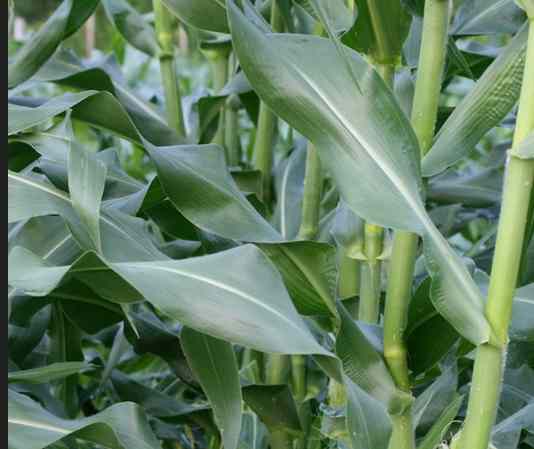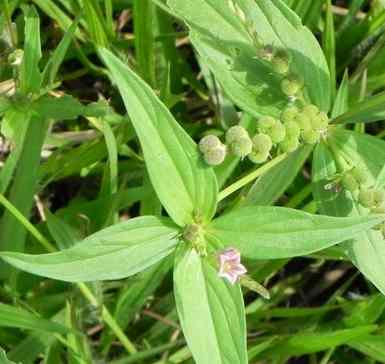
support@yorubalibrary.com
+2348073529208, 07038599574

Ewe Abiwere is a multi-functional leaf in Yoruba land. For instance, it has a special role it plays in the process of giving birth by women (child labour). When you hear a Yoruba elder saying "Ewe Abiwere loni ki o bi tire were, ataare kan kii di tire laabo", this statement is like Iwure (prayer) being said to a woman for a safe delivery. This leaf also has many other uses apart from this.
Abiwere is a small but powerful plant well respected in traditional Yoruba herbal medicine. Despite its modest size, it plays a major role in treating a variety of health conditions. For generations, this plant has been used by herbalists and native healers across Yoruba communities to promote fertility, reduce fever, support women’s health, and relieve urinary problems.
Abiwere is typically found growing wild in fields, grassy lands, and along roadsides. Its healing strength lies in both its leaves and roots. Known for its ability to strengthen the body, regulate menstrual flow, and improve male and female reproductive health, Abiwere is one of the go-to plants in many Yoruba herbal formulas. Its gentle nature and wide range of functions make it suitable for both internal and external applications.
This article presents a clear and practical guide to the characteristics, functions, and healing roles of Ewe Abiwere in Yoruba land. Whether you are a researcher, herbal enthusiast, or someone looking for natural remedies, this post provides useful knowledge about how this plant contributes to traditional healthcare.
Key Facts
Category: Leaf
Botanical Name: Hybanthus enneaspermus
Common Name: Spade Flower
Yoruba name: Ewe Abiwere
Igbo Name: Nil
Hausa Name: Nil
Characteristics of Abiwere Leaf
• Size and Structure:
Abiwere is a small, low-growing herb that spreads close to the ground. It has slender stems and small green leaves.
• Leaves:
The leaves are simple, oblong, and grow alternately along the stems. They are soft to the touch and have a mild green color.
• Flowers:
The plant produces small, purple or violet flowers that resemble a spade in shape—hence the English name "Spade Flower."
• Growth Habit:
It grows in wild areas and can be found year-round in tropical regions, especially during the rainy season.
Uses and Functions in Yoruba Herbal Practice
1. Fertility Support for Women
Abiwere is widely used to support women who are trying to conceive. It is believed to cleanse the womb and balance hormones naturally.
2. Menstrual Health
The leaves are used to regulate irregular menstruation and ease period pain. It helps reduce excessive bleeding and promotes healthy flow.
3. Postnatal Care
After childbirth, women are given Abiwere in herbal mixtures to help flush out retained blood, strengthen the uterus, and restore energy.
Want to treat common ailments such as Malaria, Cough, Measles, Typhoid, Pile etc naturally without spending much? Grab a copy of Authentic Herbal Solutions: 15 Common Ailments & Their Natural Cures. A practical eBook recommended for everyone regardless of tribe, religion or association. Order below or Download sample here
AUTHENTIC HERBAL SOLUTION #4KOne Yoruba proverb says "Bí olóde ò kú, òde rè kì í wu Gbégi". Do you know that Gbégi is actually a leaf/plant? Get Yoruba Proverbs on Plants and Herbs, which is a collection of Untold Wisdoms Hidden in Leaf and plants comprising their Life Applications & Moral Teachings. Order below or download sample here
YORUBA PROVERBS ON PLANTS #4K4. Urinary and Bladder Health
The plant is used in treating urinary tract infections, painful urination, and bladder discomfort. It has mild diuretic properties.
5. Sexual Weakness in Men
Abiwere is also used to treat mild cases of erectile dysfunction and improve sperm quality in traditional Yoruba settings.
6. Fever and Body Weakness
It is often included in herbal preparations for treating malaria-related fever and general body weakness due to its cooling and revitalizing effect.
7. Blood Purification
The leaf is considered useful in cleaning the blood, removing internal heat, and supporting overall body wellness.
Healing Properties of Abiwere
• Anti-inflammatory – helps reduce swelling and internal heat
• Fertility-enhancing – supports hormonal balance and reproductive health
• Mild diuretic – promotes proper urine flow and supports kidney function
• Antimicrobial – helps fight minor infections
• Blood tonic – improves blood quality and circulation
Conclusion
Abiwere (Hybanthus enneaspermus) is a valuable herb in Yoruba traditional medicine, especially in the care of women’s health and reproductive wellness. Though it is a small plant, its healing influence spans fertility, urinary care, and general well-being. Its continued use across Yoruba communities is proof of its reliability and importance. As more people seek natural and culturally rooted remedies, Abiwere stands out as a quiet but effective solution backed by generations of indigenous knowledge.
Have you heard of our Yoruba Herb Dictionary? This contains names of Yoruba Leaf, Roots, Barks, Characteristics, Properties & Identification with HD Pictures. Order below or download sample here
A-Z HERBS & LEAF DICTIONARY #4K
Know more about the Yoruba traditional uses and he…

Learn about Ewe Aran, a potent Yoruba medicinal le…